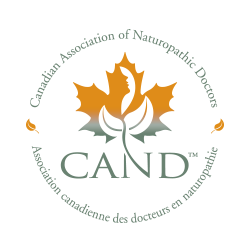09 May A conversation with Skin, Fertility & Hormone Focused Naturopathic Doctor and Acupuncturist Dr. Olivia Leung
Naturopathic Medicine Week 2025 – A conversation with Skin, Fertility & Hormone Focused Naturopathic Doctor and Acupuncturist Dr. Olivia Leung
 During Naturopathic Medicine Week (May 5-9), the CAND highlights the value of naturopathic medicine and the role of naturopathic doctors (NDs) in supporting the health and well-being of Canadians.
During Naturopathic Medicine Week (May 5-9), the CAND highlights the value of naturopathic medicine and the role of naturopathic doctors (NDs) in supporting the health and well-being of Canadians.
Dr. Olivia Leung is a naturopathic doctor and registered acupuncturist. Her approach uniquely blends traditional and evidence-based medicine to empower patients on their wellness journeys, particularly in the areas of skin, fertility, and hormones. Driven by her own wellness journey, she optimizes foundational health, with a special interest in these key areas.
This transcript has been edited for length and clarity.
What initially attracted you to naturopathic medicine as a career path? What is your “why” for being an ND?
My dad is an acupuncturist and traditional Chinese medicine practitioner, so I grew up surrounded by its principles, even if I didn’t fully appreciate them at the time. It wasn’t until I faced my own health challenges with Polycystic Ovary Syndrome (PCOS) and acne that I began to understand the depth and value of a more holistic approach. Conventional medicine didn’t provide all the answers, and that experience revealed a gap in care that I couldn’t ignore. After finishing my undergraduate studies, I spent a year working at a walk-in clinic to gain experience and explore my next steps. That’s when I discovered naturopathic medicine—a path that beautifully blends evidence-based care with traditional wisdom. It felt like a natural fit, not just to support my own healing, but to help others feel seen, heard, and empowered in their own health journeys.
Can you briefly describe your area of practice within naturopathic medicine?
I started with a general practice, and over time, my clinical focus naturally evolved to women’s health. I frequently support patients with skin concerns, fertility challenges, cycle irregularities, PCOS, and perimenopause. Because these issues are often interconnected, I also address related concerns like digestion, burnout, and nervous system dysregulation. Interestingly, treating these complex layers often brings me back to the foundations of general naturopathic care—where everything is connected and the whole person is the priority.
In your own words, how would you define naturopathic medicine to someone unfamiliar, and express the benefits of adding an ND to their healthcare teams?
Naturopathic medicine is a holistic approach to healthcare that focuses on identifying and addressing the root causes of illness and managing symptoms. My priority is to listen with the aim to understand the whole person – their physical, mental, and emotional well-being.
The benefit of adding an ND to your healthcare team, and where I see my role, is to empower individuals to become active participants in their health journey, equipping them with the knowledge to ask informed questions and engage in meaningful conversations with their healthcare providers.
What are the core principles of naturopathic medicine that guide your practice?
I believe true healing starts with restoring the foundational pillars of health—nutrition, digestion, sleep, stress management, movement, and mental/emotional well-being. My approach focuses on strengthening these core areas first, and then incorporating supplements, herbs, or other supportive therapies as needed, to enhance the healing process.
How would you describe the typical ND-patient relationship? What makes it unique?
The ND-patient relationship is built on collaboration and open communication. What makes it unique is the time and care we invest in truly understanding the root causes of health concerns, and not just addressing symptoms.
Much of my practice involves supporting fertility patients alongside their existing healthcare team. In these cases, I often act as a complementary resource, offering additional clarity and space to explore the “why” behind their treatment plans. It helps them feel more confident, informed, and empowered as they move through their fertility journey.
How do you tailor your treatment plans to meet the individual needs and preferences of each patient?
From the very first intake, I take a patient-led approach. While I have a framework of questions to guide the conversation, I make space for patients to share their day-to-day routines, challenges, and barriers to consistency. This allows us to identify obstacles together and create realistic, sustainable strategies tailored to their unique needs and preferences.
Often, it’s the small shifts—like reframing a perspective or reordering daily habits—that lead to the biggest breakthroughs. Patients are often surprised by how impactful these simple changes can be, saying things like, “I never thought about it that way!” These conversations are key to strengthening the foundations of health.
What is the most rewarding aspect of being an ND?
So many things! The most rewarding aspect of being an ND is being able to hold space for people as they share their stories, and to support them in feeling empowered in their health journey. Even when a case doesn’t lead to full resolution, being part of that process and witnessing shifts is incredibly meaningful.
Where do you see the field of naturopathic medicine heading in the next 5-10 years?
In recent years, especially during and after the pandemic, there has been a growing awareness of the importance of preventative health. I’ve noticed that more people are not only becoming familiar with naturopathic medicine but are actively seeking it out.
I believe naturopathic medicine is heading toward greater integration with the broader healthcare system. I envision a future where NDs collaborate more closely within multidisciplinary teams, enhancing communication, improving access to care, and ultimately supporting better patient safety and outcomes.
My hope is that more people recognize naturopathic medicine as a valuable tool for prevention and health optimization, not just for when something goes wrong. It’s about being proactive and curious about your health.
